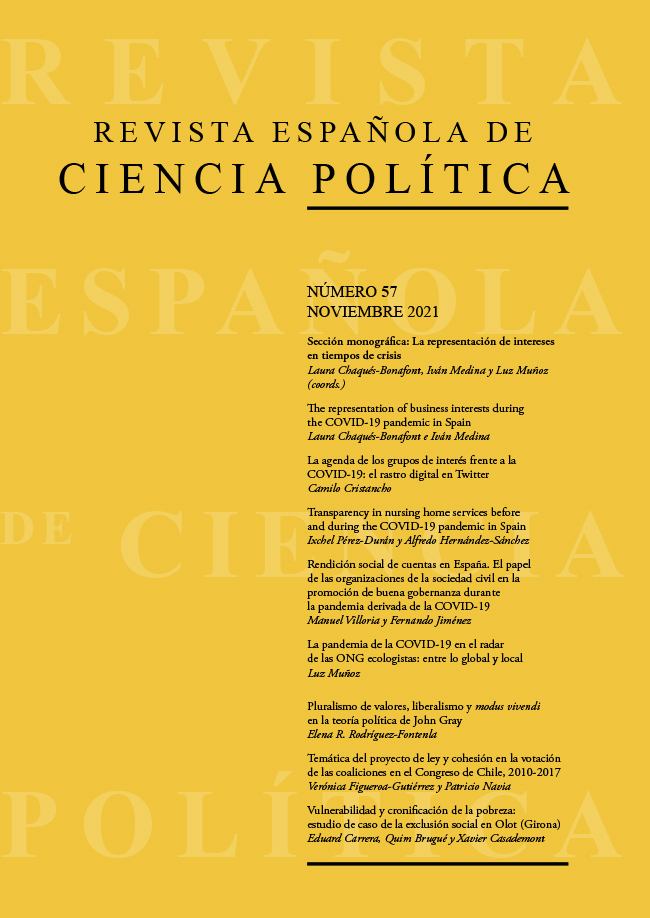Temática del proyecto de ley y cohesión en la votación de las coaliciones en el Congreso de Chile, 2010-2017
DOI:
https://doi.org/10.21308/recp.57.07Palabras clave:
comportamiento legislativo, votaciones nominales, cohesión, temática de la ley, ideología, ChileResumen
Estudios sobre la cohesión de legisladores en las votaciones en sala han reportado un efecto de pertenecer al oficialismo, del origen e importancia del proyecto, del ciclo electoral y otros aspectos del diseño institucional. Pero la teoría también asocia la cohesión en las votaciones a la temática del proyecto, un aspecto que ha sido insuficientemente abordado en estudios sobre cohesión partidista en democracias presidencialistas de América Latina. Este artículo somete a prueba cuatro hipótesis que incluyen el efecto de la temática en la cohesión de las votaciones de las coaliciones en las 6468 votaciones en sala en la Cámara de Diputados de Chile entre los años legislativos 2010 y 2017. Los legisladores de la coalición de derecha se cohesionan más en temas de defensa y seguridad ciudadana. En contra de las expectativas, los de izquierda no se cohesionan más en temas de protección social o derechos humanos. Los legisladores del oficialismo se cohesionan menos en votaciones sobre presupuesto. La temática del proyecto parece importar más a la derecha que a la izquierda, aunque especulamos que esto puede deberse en Chile a que la coalición de derecha está compuesta por un número menor de partidos con mayor homogeneidad ideológica.
Descargas
Publicado
Cómo citar
Número
Sección
Licencia
Derechos de autor 2021 Verónica Figueroa-Gutiérrez, Patricio Navia

Esta obra está bajo una licencia internacional Creative Commons Atribución-NoComercial-SinDerivadas 4.0.






